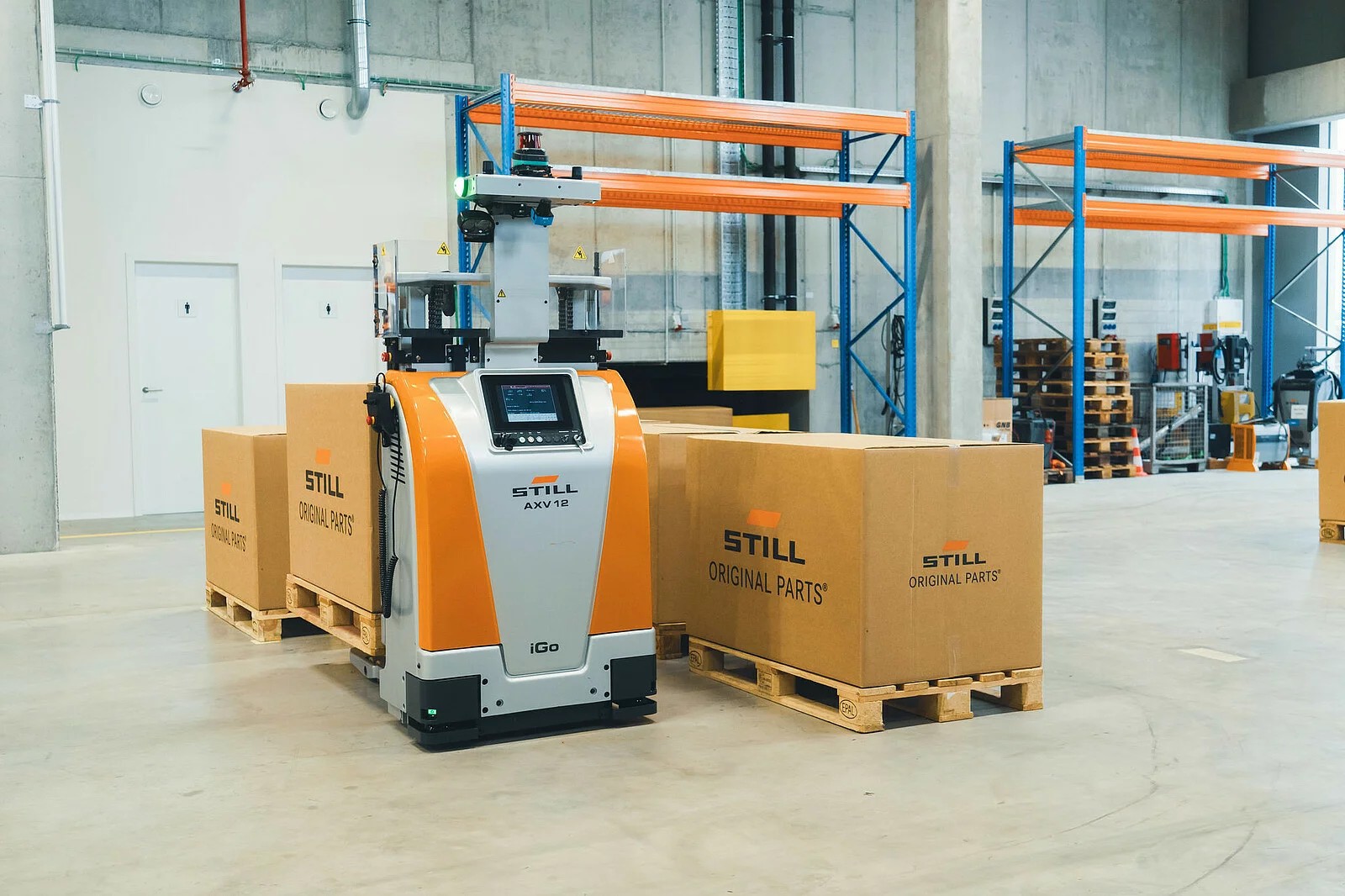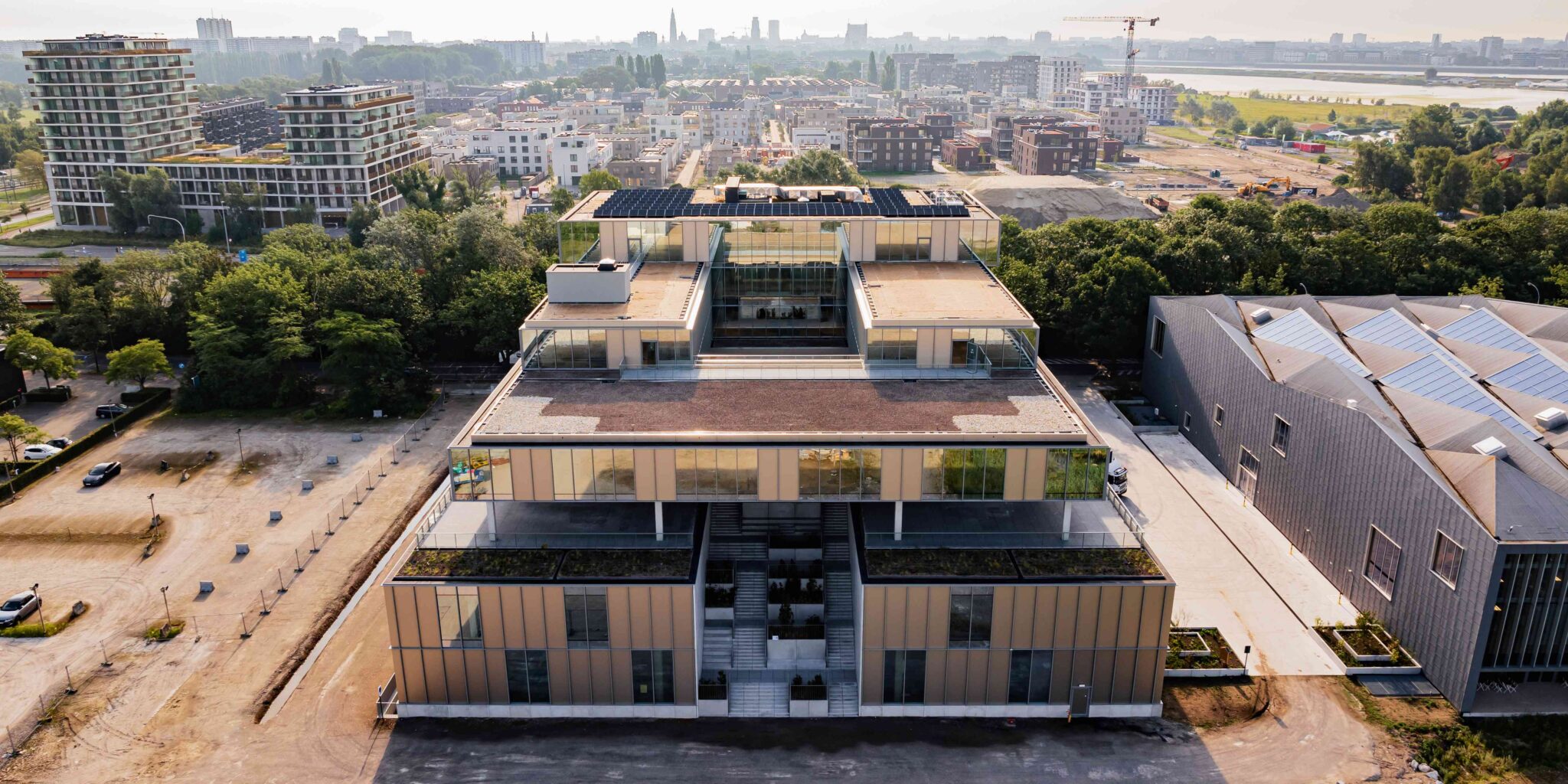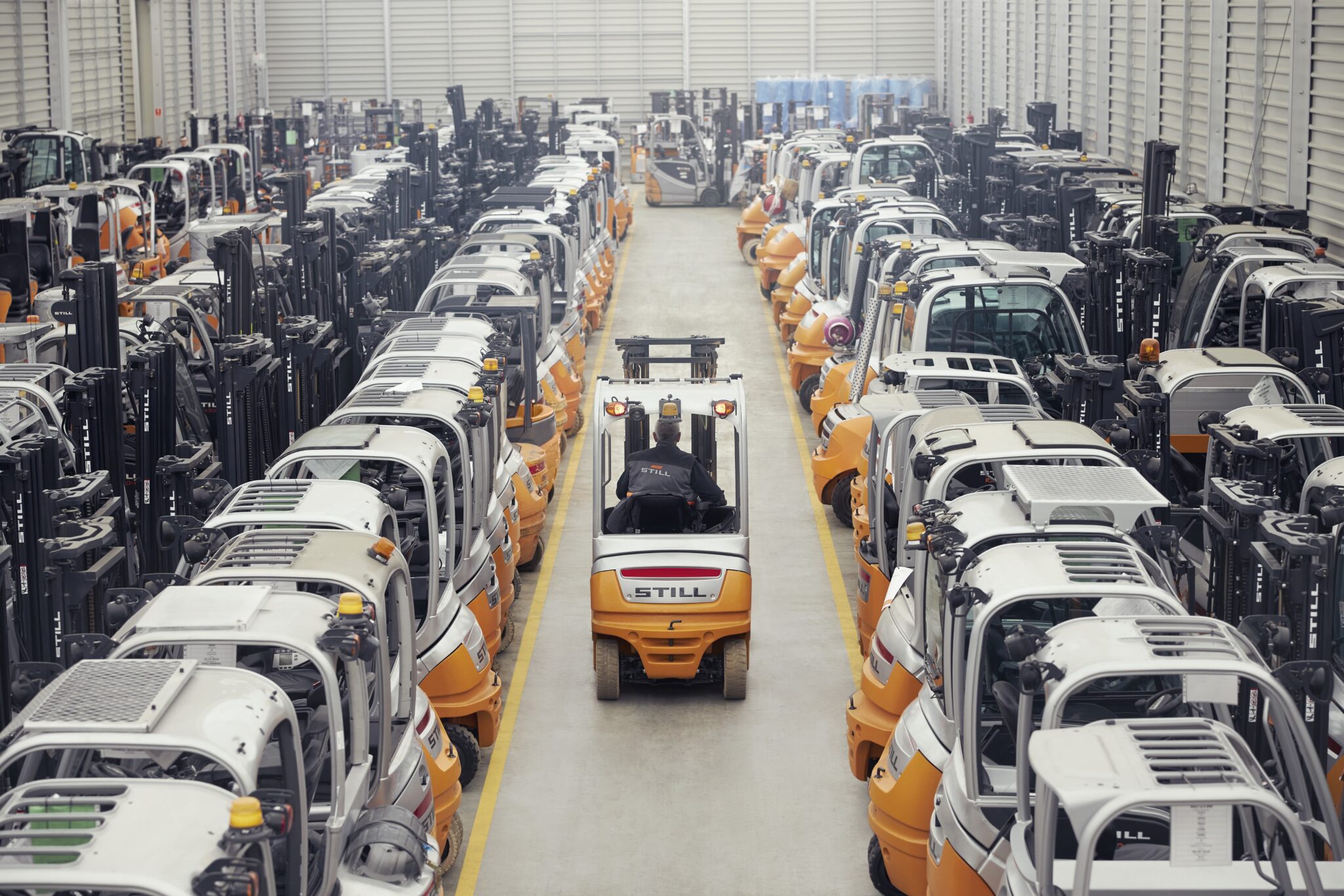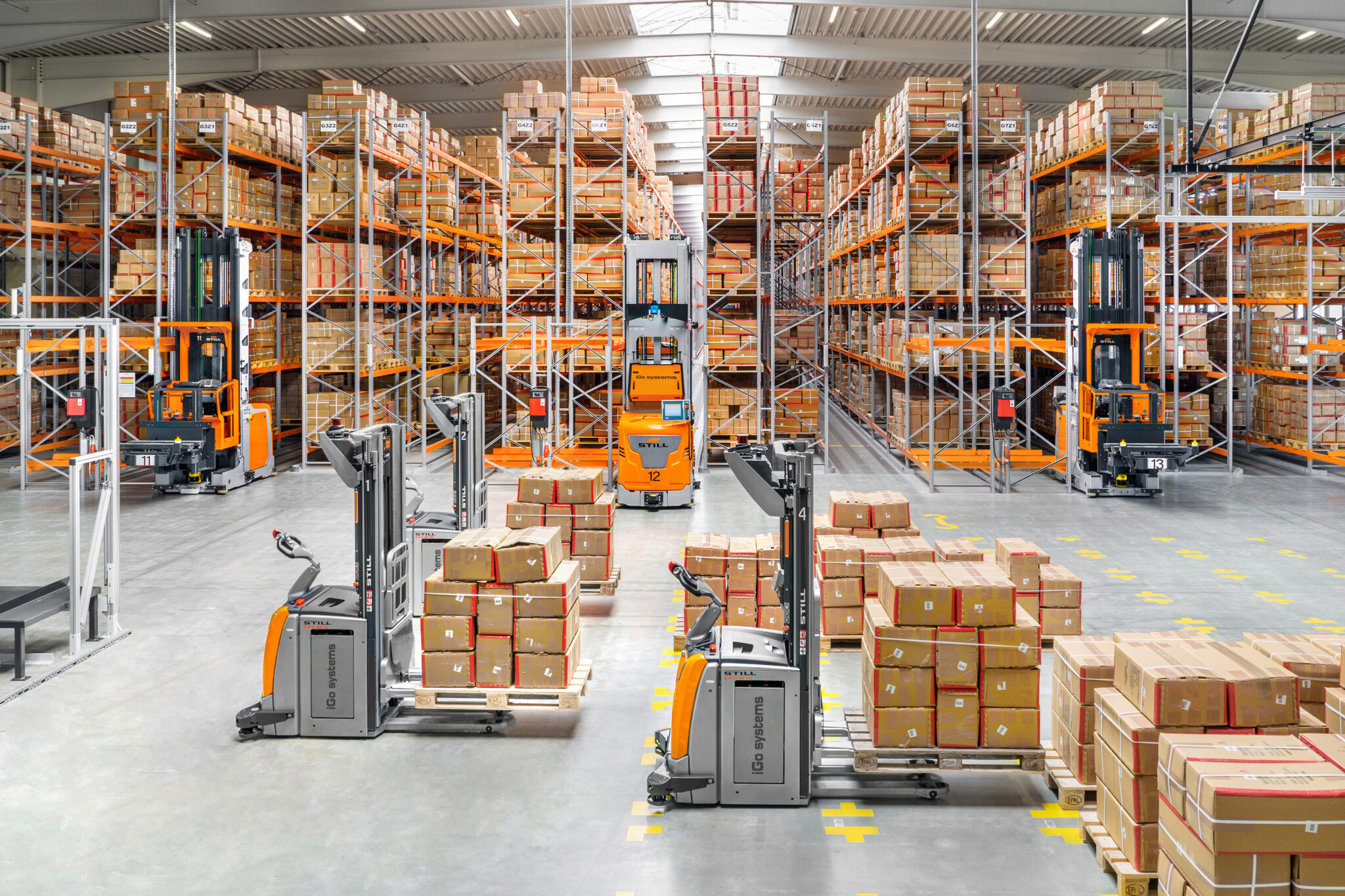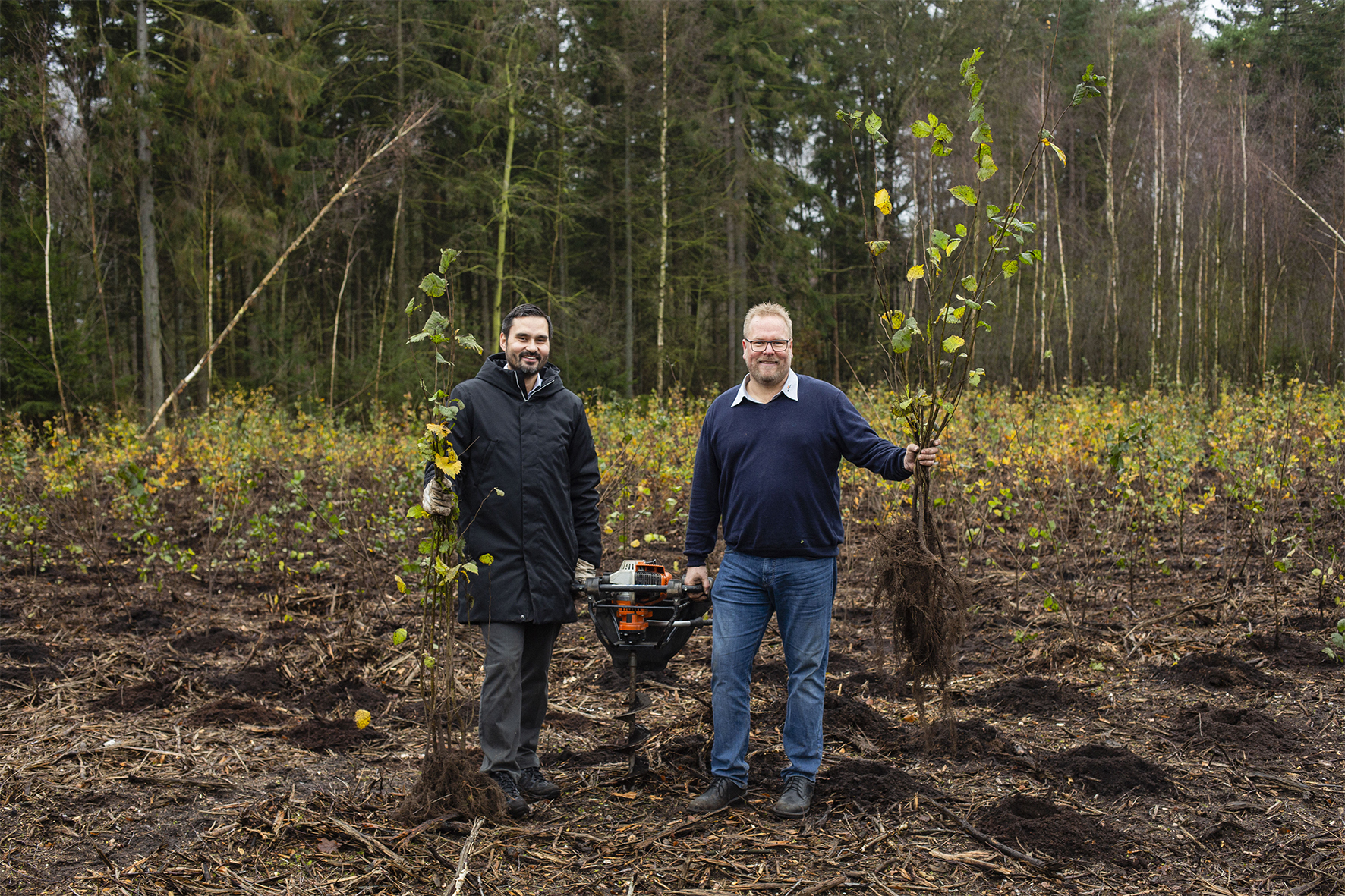Oranges are not the only fruit, and in the world of warehouse vehicles brand differentiation is significant. Still Materials Handling, the ‘orange truck’, is automating its product line, as David Priestman reports from a press event in Antwerp.
In the charge towards warehouse automation materials handling OEMs want to avoid being typecast as just a forklift supplier or racking provider. Still’s new pitch is to be a systems integrator, while continuing to offer manually-driven warehouse vehicles. “We’re a one-stop-shop,” declares Managing Director Dr Florian Heydenreich (pictured). “70% of customers want to automate. We want them to think smart from the start and we’re providing customer-optimised products, robotics, hardware and software.”
The former factory of Egemin, the Belgian automated guided vehicle (AGV) pioneer, on the outskirts of Antwerp, is now Still’s automation competence centre, with 400 staff here. Since Egemin joined the KION group in 2015 (for a reputed €72m), expertise in AGVs has permeated to the rest of the group’s companies. The AGV market is forecast to grow by 18% per annum, driven by a need for process efficiency, cost control and the shortage of labour. Still, understandably, wants to rapidly gain market share. “Our aim is to advise and offer the best fit solutions, regardless of customer size and experience in automation,” Heydenreich adds, describing a holistic strategy.
“Automation is a hype, with five myths,” he explains:
1. Automation only works in new build facilities with high investment. This is not true as automation does not always replace manual operations, can be scaled-up and is therefore suitable for existing, ‘brownfield’ DCs
2. Automation solutions lack reliability. Automating cannot turn a bad operation into a good one without collaboration. 98% reliability is achievable
3. Immature technology. The biggest risk is the human factor. Companies must define standards, expectations and processes, for example regarding peak performance
4. Traditional materials handling providers are not innovative enough. We need to set standards for automation. Still has 600 employees working on simulation and project design
5. Automation is a purely contractual arrangement – the customer orders it and the integrator just implements. No – it is a joint approach, including change on the customer’s side, that needs time and consideration. Success requires close co-operation.
No forklift accidents without humans
Automation-as-a-service is what Still propose. An AGV is essentially a set of computers and sensors with forks and wheels. ‘Service readiness’ is key. Data is provided by every vehicle to the customer and to Still technicians for predictive maintenance. There no longer needs to be two different types of engineer – one for hardware and one for software as every technician can do all the work an AGV needs, using diagnostics and system updates. The machines have been ‘industrialised’, being built on the same production lines as manual trucks, making them cheaper and more highly available. For a three-shift, 24/7 operation, automation is the answer.
With two fleet management systems, ‘iGo Easy’ and ‘iGo Systems’, users can choose between standard or high-performance AGV fleets, with models such as the EXV 16 and AXV 12. iGo Easy does not require ERP or WMS and the user interface is any mobile device, with a lean project team. iGo Systems integrates AGVs into the customer’s WMS, with intelligent order allocation and storage location selection, to maximise throughput based on priority, weight of load etc. Data is stored on which AGV stores which load, where and when.
Reaching up, not out
The entire warehouse is mapped, creating a digital twin, for navigation, with precision to the nearest centimetre. The EXV has a lead time of just 8 weeks, from order to delivery. AGVs can be customised too. The company has many years of reach truck expertise and is putting that to good use with automated reach trucks, offering high-bay operations up to 7m and beyond. These AGVs can work in VNA warehouses with aisle widths as narrow as 2950mm.

Other automation solutions include AMRs, which learn from changes in the warehouse without re-programming, and the ‘iGo Cube’ for high-density storage, using AMRs. This is a pallet shuttle with WCS – a fully-automated ‘black box’. It takes six months to order and install a standard iGo Cube system, which can used in cold stores. All automation installations envisage a 12-year lifespan, with return-on-investment typically 3 years. Installation challenges often include the floor quality for AGVs to be able to drive at full speed and up to the maximum height, as well as when there are both pallets and totes being utilised.
Driverless installation
Third party logistics (3PL) provider Yusen Benelux’s Project Manager for Contract Logistics, Gitte Daelemans, talked me through the recent automation solution by Still for a 40,000 m2 greenfield hub, fully-automated warehouse. The DC is run exclusively for one large pharmaceutical company and features temperature-controlled zones (including vaccine storage for 11000 pallets), as well as quality control, packing and despatch and a secure area of 1440 pallets for hazardous products. Commenced in 2022, it went live last summer, undertaking 160 pallet transport per hour.
“This was a chance to automate,” says Daelemans. “The longer the 3PL contract the bigger the investment in automation. We defined the process implementation and what needed improving.” The DC is managed in a single integrated system, using Manhattan Associates’ WMS and provides smart integration of inbound and putaway processes. “It’s hard to find drivers with reach truck skills. But we still need staff for picking,” she points out.
The AGV vehicles operate in ambient conditions (35000 pallets) as well as in cool storage environments. The narrow aisle racking system has 10 automated VNA trucks – MX-X iGo, and 18 automated high lift pallet trucks – EXV iGo with sensor-based positioning. The EXV iGos deliver pallets to designated aisle drop-off points, where the automated VNA trucks pick them up and store them in the narrow aisle racks. This ensures high pallet throughput with minimal human intervention.

A full ‘day-in-the-life’ test prior to implementation helps to resolve any outstanding issues. “Volume testing is really important,” adds Daelemans. “Not just 1 or 2 machines but with inbound and outbound running to detect bottlenecks. This is difficult without the customer’s pallets being there before go-live.” She advises appointing a dedicated person to oversee the automated solution, along with implementing a contour scanner check for weight and measurement with an adjustable tolerance range that maximises acceptance, reducing rejection rates and the need for manual intervention. “We learned some lessons after go-live to be able to optimise things in the subsequent months and hit our KPIs,” Daelemans concludes, citing reject lanes and barcode readability.
Pragmatic approach
Still’s corporate culture is to be pragmatic. The company is not pursuing the highest-tech products for the sake of it, but rather the right technology and solution, sensibly. There has been a change in philosophy to ‘think automation’, instead of ‘building forklifts’. The company has the distinct advantage of having many customers already familiar with the brand, rather than being a new entrant to this space and Still is re-asserting its brand distinctiveness within KION.
I concluded my insightful visit by spending time with Frank Heptner, VP of Automation. An enthusiast, the former BMW executive embodies the upbeat Still attitude. “What is Still’s USP now?” I asked him. “Our local footprint, for installation and service is key, but we’re also a global partner; we’re everywhere, in every vertical market. We have a long history and our own DNA: Experience, stability and innovation,” he emphasises. And the competitors? “We have good coverage. There are lots of AMR suppliers, but few companies are automating larger AGVs,” he states.
What is the impact of automation on existing manual trucks? “There are 2 types of customer,” Heptner tells me. “Those that needed to automate years ago and those new to it. They’re all looking for automation. The speed of replacement of manual, driven trucks with ‘plug & play’ AGVs will accelerate. Perhaps a third of trucks will be automated in the foreseeable future.” Instead of training forklift drivers, managers will run a fleet of bots. For petrolheads like Heptner and myself that inevitability is sad, but true.
similar news


